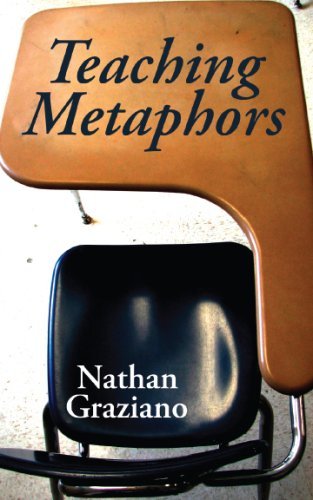What do you think?
Rate this book


76 pages, Paperback
First published June 7, 2007
[...] glorified babysitter, zookeeper, or sick sexual predator [...]" (from the introduction),
[ ... ] because [the stereotypes] speak to a human need to categorize[.] [ ... ] [T]he labels slapped on us often reveal some core truths about ourselves, both as individuals and as a society. [ ... ]
[ ... ]
In your more serious moods, you stand outside your classroom in your shirt and tie and fail to see yourself.
Other times, you can see your own face through the steam, wearing that dizzy gaze that has always belonged to you.
[ ... ]
embarrassed because this former student sees me
outside of the classroom without the natty necktie
that frames me in a portrait of adult asexuality,
embarrassed because I see him standing alone
in the winter mist with his baseball hat crooked
while his mother's frail hand clings to a phone." (from “At a Red Light in the Winter Mist”).
I see him like the naked eye sees comets:
on rare occasions. It's always at the copy machine.
He teaches in a classroom eons from the English wing,
in the black hole known as the industrial arts.
Today he's pirating a how-to leaflet on drywall,
an inch-thick packet that reads like Sanskrit to me.
I'm waiting, fidgety, with a W. C. Williams poem
dog-eared in a fat anthology, a piece
I neglected to photocopy before class.
The Industrial Arts Teacher [ ... ]
stands hunched [ ... ]
[ ... ] whistling a song
I recognize [ ... ].
He whistles in perfect pitch, merrier
than Wordsworth's daffodils dancing ten pages ahead
in the anthology growing heavy in my hands.
There's no reason to expect him to allow me
to step in front, make a quick photocopy
and get back to my creative writing students.
So I lean against the wall and listen to him whistle,
enjoying this impromptu concert by a man
whose own students are too smart to study poetry.
[ ... ]
We never made it past
the giggling after I wrote
“assonance” on the board." (from “A Deeper Appreciation for Sound”)